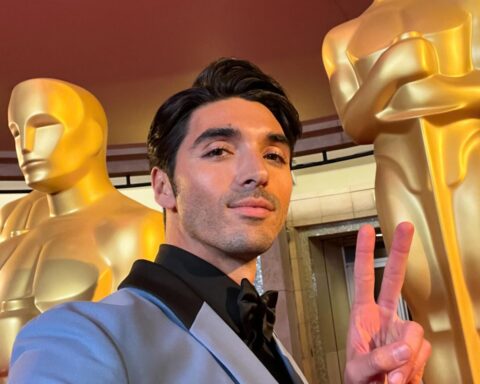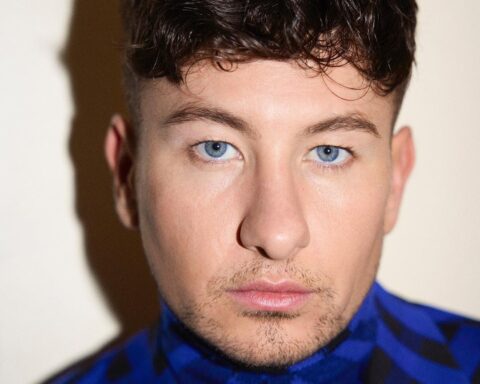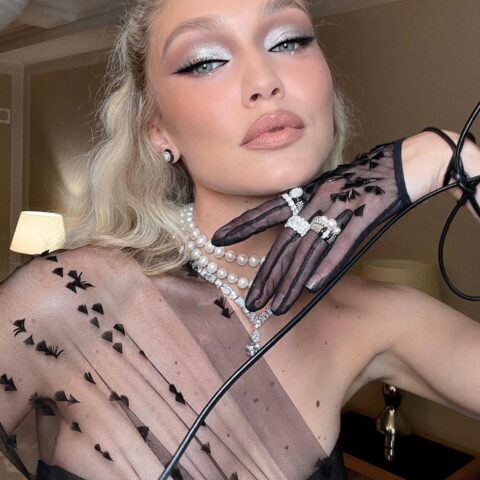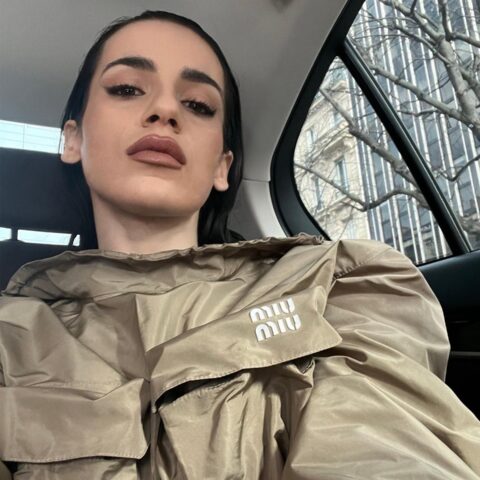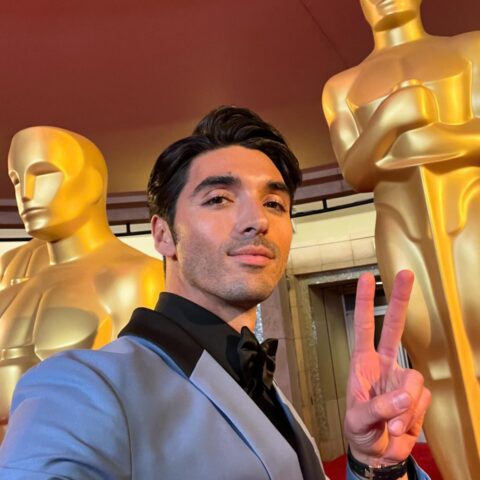Stylist: Victoria Sekrier
Outfit: custom Louis Vuitton by Nicolas Ghesquière
Tailor: Joel Jolibe
Makeup Artist: Kelly Cornwell using Chantecaille
Hairstylist: George Northwood
I’m always on the hunt for unexpected outfits and interesting patterns. Soon enough, Alicia Vikander‘s look for this year’s Cannes Film Festival came to mind and I couldn’t miss the opportunity to write about it–let’s get into it together.

Photo credits: Isidore Montag / Gorunway.com

Photo credits: Isidore Montag / Gorunway.com
Vikander donned a copper Louis Vuitton custom-made embroidered metallic gown paired with Louis Vuitton High Jewelry precious pieces.
One of those was a cocktail ring with the famous Louis Vuitton monogram star, plus a pair of round pendant earrings with emeralds. The shoes were almost invisible on the red carpet and for this reason, we could not identify them–we could just see that they were probably white platform shoes.
When it came to makeup, we all know that Vikander is a natural beauty and her makeup artist Kelly Cornwell is well known for her care of the skin while working on a client. It goes without saying that the pro used Chantecaille products to achieve the best results, here they are (slightly edited for clarity):
“Skin:
– Chantecaille – Advanced Bio Lifting+ Massage Tool;
– Chantecaille – Gold Recovery Mask;
– Chantecaille – Gold Energizing Eye Recovery Mask;
– Chantecaille – Limited-Edition Pure Rosewater;
– Chantecaille – 24K Gold Firming Moisturizer;
– Chantecaille – Anti-Aging Face Tint to give Alicia a bronze glow.

Face:
– Chantecaille – Sunbeam Cheek and Eye Shade on places where we naturally catch the sun like: cheeks, down the bridge of the nose, chin and collar bones;
– Chantecaille – Future Skin Cushion Skincare Foundation in ‘Agave‘;
– Chantecaille – Future Skin Oil Free Gel Foundation in ‘Shea‘;
– Chantecaille – Real Skin+ Eye and Face Stick in ‘4W‘;
– Chantecaille – Real Bronze in ‘Sirena‘ and ‘Goa‘;
– Chantecaille – Liquid Lumière Highlighter in ‘Sheen‘;
– Chantecaille – Cheek Gelée blush in ‘Vibrant‘ and ‘Happy‘.

Eyes:
– Chantecaille – Luminescent Eye Shade in ‘Elephant‘, ‘Giraffe‘;
– Chantecaille – Full Brow Perfecting Gel + Tint in ‘Dark‘;
– Chantecaille – Faux Cils Longest Lash Mascara;
– Chantecaille – Luster Glide Eye Liner in ‘Jasper‘;
Lips:
– Chantecaille – Lip Tint Hydrating Balm in ‘Sunflower‘;
– Chantecaille – Lip Veil in ‘Tamboti‘;

Tools:
– Chantecaille – Kabuki Brush;
– Chantecaille – Foundation/Mask Brush;
– Chantecaille – Bronze Liquid Sculpt Brush;
– Chantecaille – Buff & Blur Brush.”

Chantecaille revealed that Cornwell‘s inspiration was the thought of “a mermaid dripping in bronze coming out of the sea”.
Well, we think she absolutely nailed it.
Hairstylist George Northwood styled Alicia‘s hair in a slick/messy top knot, perfect to beat the heat of the South of France; the actress’ nails were au naturel.
━━━━━━━━━━━━
Here is the plot of “Holy Spider“: ‘A journalist descends into the dark underbelly of the Iranian holy city of Mashhad as she investigates the serial killings of sex workers by the so called ‘Spider Killer‘, who believes he is cleansing the streets of sinners.











